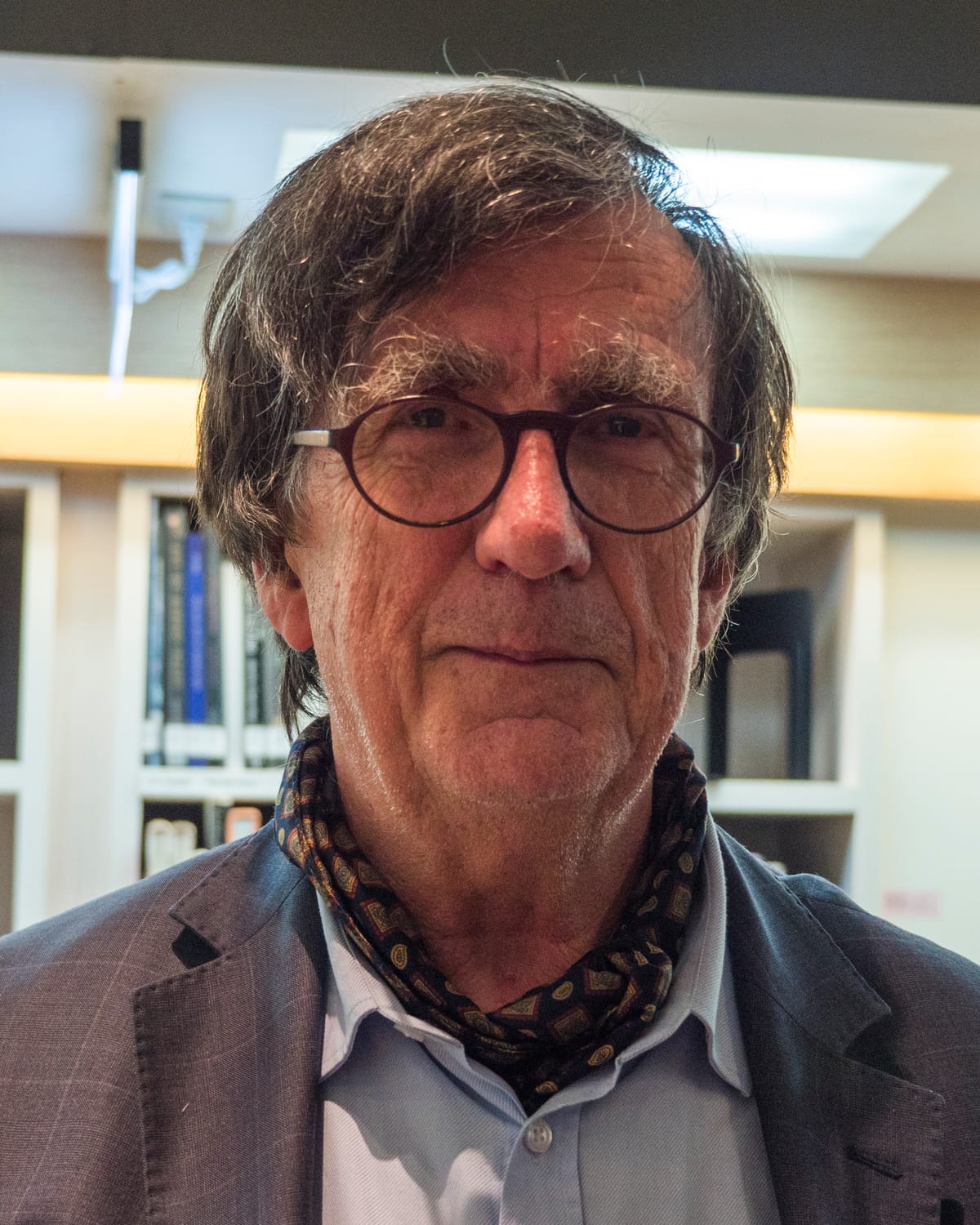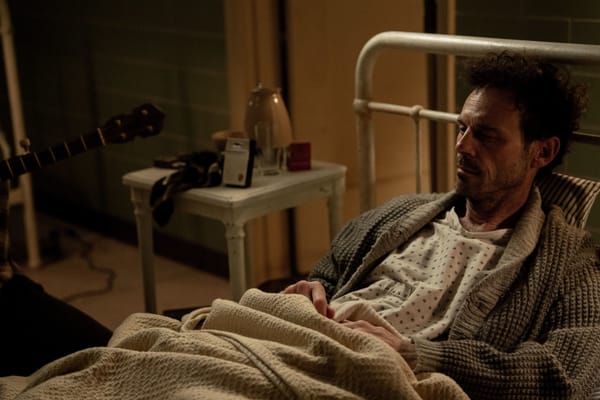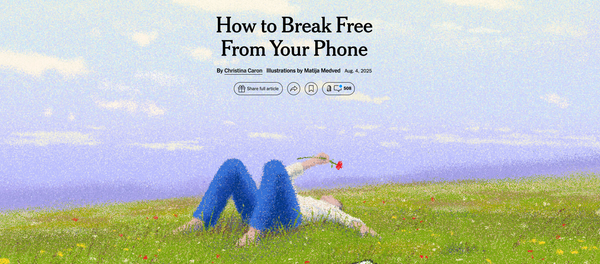GC Dispatches, Pt. 2 – Co-Creating Community
Plus a free slogan to croak in your Yoda voice

I'm offering a few General Convention reflections from the lens of this now newsletter / soon podcast / someday (maybe) book, which is to say learning, faith, and media, especially as mediated through play.
I had a weird sort of anxiety heading into my first General Convention in nine years and my first Big Church Conference since before the pandemic and before my daughter was born.
The anxiety was mostly not because that little Joy Tornado (our newest silly appellation for the one known to many by her hashtag, #VitaminF) was coming with me, without Mama. I enjoy and am pretty good at Solo Dadding, and I was confident it would be challenging but doable—with the help of the amazing folks at the General Convention Children's Program as well as some heart-warming assists from my CDSP colleagues. (Mistakes were made. But we're home and still on speaking and cuddling terms. I'd do it again in a heartbeat)
Honestly, I was worried what it would feel like to be back "on the scene."
About six months into my first post-seminary job, as digital missioner in what was then the Center for the Ministry of Teaching at Virginia Seminary, I started traveling regularly to regional and national church conferences, trainings, and other gatherings. In peak Churchwide Resource Person Mode, I was hitting the road probably once per month or so. Enough people recognized me from this highly visible and hyper-privileged work that I was elected president of Forma back when that organization was an independent nonprofit, though I ended up resigning my role as president-elect when I was accepted to Teachers College and decided to step back into doctoral studies.
When we moved to SF and I needed a part-time gig quickly to replace the income from the NYC church job I'd been working to help pay the grad school bills, I lucked into the chance to produce Presiding Bishop Curry's Way of Love podcast. So I wasn't traveling quite as much, but I was still popping up with the usual suspects regularly—interviewing colleagues for the show, getting listener feedback, etc. My life was different, but the difference felt qualitative rather than quantitative, if that makes sense. I was still pretty intensively "on the scene."
It is a weird way to live, having your very closest colleagues and collaborators spread out all over the nation and world. I liked it. And I've missed it. But I've also really valued the chance NOT to travel much, to (mostly) be off this particular scene.
In two stints on the CDSP staff sandwiching two years at Learning Forte, I've only left home when absolutely necessary. And my collaborative energy has been much more focused—on CDSP students and staff, on LF! clients and teammates. And, of course, on my family and my dissertation committee. Indeed, (1) baby + (2) pandemic + (3) dissertation were the trifecta of factors placing me "off the scene" for more than four years after eight years intensively on it.
Of course, dipping my toe back in wasn't really a choice I was making: I direct communications at CDSP, and General Convention is where much of the life of all the seminaries gets communicated to the wider Episcopal Church. I suppose being there didn't have to be some kind of reference knot along the personal narrative thread I've been pulling on here. But I am who I am and so it did.
The result? Reader, it felt pretty good, actually.
It turns out that during my time away I've learned a bit about networking, self-care, church commerce, and my interests and disinterests with respect to Episcopal Church governance.
I worried that attending GC81* would feel like being pulled out to sea by a rip current. It felt more like putting on boots, parka, and other cold weather gear: familiar, surprisingly cozy, a little tiring, sometimes momentarily contorting.
And it has me thinking about my favorite of the theorists I studied in grad school: Bruno Latour.
(This is the part where this little essay becomes an issue of A [Christian] Formation Playbook and not just a personal journal entry. Thanks for enduring the former.)
Latour's big deal is actor-network theory. Briefly: He says that if you want to understand associations, you have to trace the connections that help them to endure. Social forces are not some kind of a priori foundation we deploy to explain social phenomena. Rather, to understand social phenomena we simply (but not easily) give careful accounts of how people, objects, meanings, etc. relate to one another across networks of connections**.
Here's the principle from actor-network theory that I find endlessly illuminating. Try it out in your Yoda voice:
I found this principle helpful when trying to explain what kind of group my dissertation partner organization Tapestry might be. Latour says that it doesn't matter, that sociological labels do more harm than good when we're trying to understand what's actually going on in a particular social scene.
We can't actually take the existence of groups for granted, Latour says. What we can do as observers—and what we must do as leaders—is attend to group formation. A group exists only inasmuch as it is constantly forming itself as a group. Or as I said in my dissertation,
what makes a group recognizable is not aggregate statistics about its members but the practices that allow the group to solidify those connections across time, to keep working in common for more than just a fleeting moment
In my view, General Convention is a fleeting triennial moment when Episcopalians make plans for how to keep working in common in the years ahead. Which I suppose is obvious in and of itself. Except Latour would caution us not to tell too simplistic a story about how those plans are taking shape.
It's true that the heartbeat of General Convention is the hypnotic rhythm of parliamentary procedure and the resolutions and elected roles it facilitates—
Mister Secretary, what is the next order of business?
Thank you Madam President. The next order of business ...
Please vote.
Please vote.
PLEASE vote. 😇
Please VOTE. 😡
—But Latour would tell us that it is a grave mistake to equate the sum of the work done at General Convention with the minutes of the houses and the end state of the virtual binder of resolutions and elections. (Lots of the people taking potshots at the proceedings are doing precisely this.)
As I walked around the corridors, meeting rooms, exhibit halls, and streets of Louisville—sometimes with a preschooler on my shoulders—I couldn't help but notice the many diverse and subtler elements of Latour's "matrices of relations," the quiet and the raucous acts of group formation in the form of
- hugs;
- text messages;
- happy lunches over sad food;
- dance moves;
- TikToks;
- TikToks about dance moves;
- pilgrimages to the worthier coffee spots;
- rants about bishops;
- raves about young people;
- confessions of exhaustion, impatience, and their various byproducts;
- jokes about the simultaneous creativity and cheapness of convention swag;
- frantic feats of face recognition, height non-recognition, name mangling, relational context reconstruction, and more;
- welcoming strangers onto elevators;
- swapping snacks, bragging about snacks, devouring snacks, documenting the cost of snacks; and
- yes, regrettably, contributing a couple of micro-cents to Elon Musk's bottom line out of sheer desperation for the one utterly unreplaceable function of the website he ruined.
Don't get me wrong. The official acts of General Convention are incredibly important. Likely difference-making along many axes of importance.
But perhaps because I was seeing my old life through new eyes—and especially because I did get some very long overdue hugs from old friends—that's the biggest thing I'm taking away from GC81:
All those small reminders of the difference-making acts that make the church I belong to, and the life that God has given me, such a beautiful matrix of relations in constant and chaotic mutual formation.
*Please don't call it GenCon.
**The more connections, the more freedom to act. Is that ironic or unsurprising, theologically? That's a post for another day.



